Army Korean War Oak Brook, IL Flight date: 04/10/24
By Charlie Souhrada, Honor Flight Chicago Veteran Interview Volunteer
The Korean War Legacy Foundation website encourages visitors to “imagine being a young soldier thrust into a foreign country thousands of miles away to fight a war.” That phrase describes Mike Di Benedetto, who grew up in Chicago, but became a man while serving in the Army during the Korean War.
“Korea wasn’t a pleasant place,” he remembers, “But it made a man out of me.”
Mike grew up in the Taylor Street neighborhood, near what is now the University of Illinois Chicago (UIC). His father, Louis, worked construction, while his mother, Mary, kept house and watched over Mike and his brother and sister.
“Baseball was the biggest thing for us,” he says. “We used to call it ‘liners’ because you played in the street and had to hit the ball straight without hitting any of the houses. The idea was to hit as far as you could.” Mike was, in his own words, a “good kid.”
After graduating from Chicago’s McKinley High School, Mike was working as a truck driver when his draft notice arrived in June 1951. Soon after, he reported to Fort Sheridan, near Lake Forest, which served as a military processing center at the time. “Everybody went there,” he says. “That’s where you got your clothes, and they shaved your head. Afterward, I was sent to Fort Leonard Wood, in Missouri, and that’s where I took my basic training.”
Typically, basic training lasted 16 weeks before new recruits were sent to their duty stations. But, due to an urgent need for troops, Mike’s time at Fort Leonard Wood was cut in half and he was put on a troopship headed to Asia after only eight weeks. He carefully mentioned the shortfall to an officer aboard ship. “I was afraid they were going to kick me off,” he says. “But the officer told me we were going to do the other eight weeks aboard ship!”
Mike explains the ship was supposed to carry 2,000 men but was crammed with 5,000 U.S. and Canadian troops who took turns sleeping in bunks stacked four high. “We went straight to Japan, but we didn’t stay there long,” he remembers. “In fact, I never got off the ship. Three thousand guys got off and we went on to Korea.” There, 500 troops were sent to the front, and the remaining 1,500 troops, including Mike, were sent to other areas.
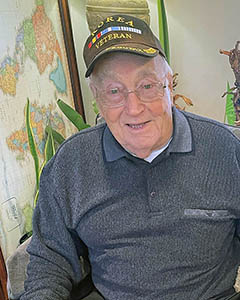
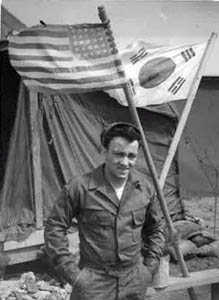
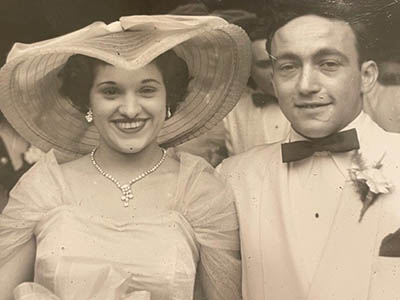
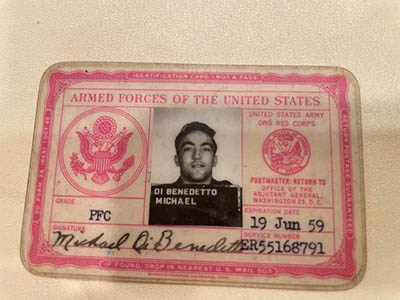
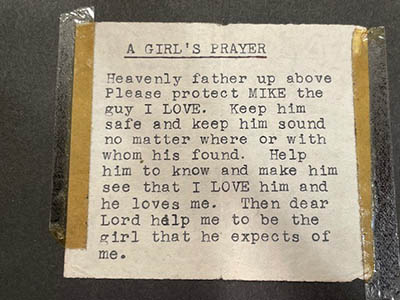
Once in Korea, Mike was assigned to headquarters in Yeongdeungpo where he served as a dispatcher sending heavy equipment throughout the country. He quickly requested a transfer to an assignment that would earn more service points. “I only got three points a month and wanted to get to four so I could rotate out faster.” Six months later, his request was granted, and he was assigned to work with a team of combat engineers attached to the 1st Marine Division.
“Our job was to build temporary bridges so the Marines could get where they needed to go,” he says. “We built pontoon bridges across the Han and Incheon rivers.” He also had a hand in building the Freedom Bridge on the demilitarized zone (DMZ), which was used to transfer prisoners of war and hold meetings between North and South Korea.
In winter 1953, Mike was sent back to the U.S. and stationed at Camp Crowder, a military base in Neosho, Missouri, where he drove a bus. “There was nothing for me to do,” he says. The base officers must have noticed because one day, Mike was asked if he wanted to go home. “Yeah!” he answered enthusiastically. With that, Mike was honorably discharged from his military commitment, three months early.
He went back to his parents’ house in Chicago, took off his Army uniform one final time, and took up his old job driving trucks. Most importantly, he resumed a relationship with his girlfriend Marge, whom he met at a family wedding before he got drafted. “She wanted to get married before I left for Korea, but I said ‘no’ because I didn’t know what was going to happen to me.”
Marge wrote to Mike every day while he was in Korea. “Sometimes I would get three letters, sometimes I would get 10 at one time!” Mike did his best to respond, but his Army responsibilities said otherwise.
When Mike came home, the couple planned to get married right away, but he developed a severe rash, which was misdiagnosed as malaria, and the couple’s plans were put on hold. “I remember Marge was crying because she waited to get married,” he says. “But now we couldn’t because I had malaria.” One of Marge’s uncles encouraged Mike to get a second opinion which he did. “I was told, ‘You just got out of the service, now you’re going to get married … you just have a bad case of nerves!’”
The rash cleared up and the couple married May 10, 1953. Soon after, they welcomed two children – Jim and Rosemary – and Mike changed his career by purchasing a currency exchange in Chicago. There, he worked long hours, seven days a week to provide for his young family. His hard work paid off and allowed him to purchase a second currency exchange and build a home in Oak Brook in 1972 where he still lives. Eventually, Mike sold both exchanges and invested in commercial real estate.
Now semi-retired, Mike spends his time managing one of the commercial office buildings he still owns, and enjoys his family, which now includes seven grandchildren and eight great grandchildren – with one on the way.
Unfortunately, Marge passed away in 2022. As a sign of love and respect, and, perhaps in repayment for all those letters she sent during the Korean War, Mike visits her gravesite every day.
Thank you for your service, Mike! We hope you enjoy your Honor Flight!


